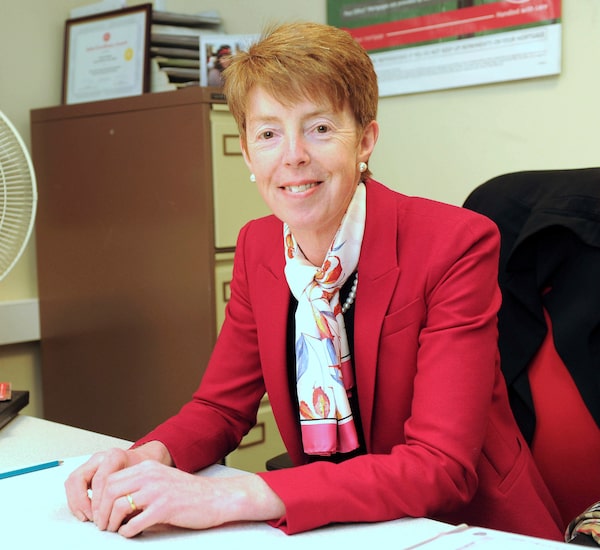
A general view of a Post Office sign in Westminster on January 8, 2024 in London, England.Dan Kitwood/Getty Images
The former chief executive officer of Britain’s Post Office who oversaw the company’s wrongful prosecution of hundreds of branch managers has agreed to return her Commander of the Order of the British Empire award.
U.K. to overturn wrongful convictions of former Post Office branch managers
Paula Vennells served as CEO from 2012 to 2019, a period when the company was going after people who ran local Post Office outlets for financial shortfalls that, it turned out, were actually the fault of the company’s accounting software, Horizon. More than 900 sub-postmasters, as the branch managers are called, were prosecuted for theft, fraud or false accounting, with 700 convicted in what has been called the biggest miscarriage of justice in British legal history. Several dozen served time in prison, and many more lost their life savings trying to repay the money.

Former Post Office boss Paula Vennells. 2013Jeremy Durkin/The Associated Press
In a statement released Tuesday, Ms. Vennells said she would give back the award. “I have listened, and I confirm that I return my CBE with immediate effect,” she said. “I am truly sorry for the devastation caused to the sub-postmasters and their families, whose lives were torn apart by being wrongly accused and wrongly prosecuted as a result of the Horizon system.”
Ms. Vennells received the CBE in 2019 for “services to the Post Office and charity.” An online petition calling for her to be stripped of the title had collected more than 1.2 million signatures.
David Smith, who set up the petition, said returning the CBE was just a start. “The ultimate goal is for the sub-postmasters to get the justice they deserve. In many ways, this is symbolic, but it is a massive symbol,” Mr. Smith said in a statement.
Former sub-postmaster Jo Hamilton welcomed Ms. Vennells’s decision but questioned why it took her so long. “It’s not just about her CBE, it’s about how disgusting the whole thing is,” Ms. Hamilton said in a statement. “We’re all sick and tired of people taking money, being paid exorbitant amounts of money, and politicians taking absolutely no notice of you whatsoever.”
Interest in the saga has been reignited by a recent television drama, Mr. Bates vs. The Post Office, which tells the story of how Alan Bates brought fellow sub-postmasters together to challenge the company.
The Post Office scandal stretches back to 1999, when the company rolled out Horizon to more than 14,000 branches. Sub-postmasters began noticing problems with the system almost from the start, but their concerns were rejected by Post Office officials, who blamed the managers for the financial discrepancies.
The company aggressively pursued the sub-postmasters for nearly a decade, until a group of them banded together and filed a lawsuit. In 2019, a High Court judge ruled that Horizon had several defects and that the sub-postmasters were not at fault for the discrepancies. He also chided Post Office officials for refusing to accept that Horizon was flawed.
The Criminal Cases Review Commission, an independent body funded by the government that reviews miscarriages of justice, has described the scandal as the “biggest single series of wrongful convictions in British legal history.”
The CCRC has been referring cases to appeal courts for review, but so far only 93 convictions have been overturned and just 30 sub-postmasters have received full compensation under a scheme set up by the Post Office and the government, which owns the company.
Justice Secretary Alex Chalk indicated Tuesday that the government was considering introducing legislation to quash all the convictions. Ministers are also reviewing how to speed up the compensation process and whether the Japanese company Fujitsu, which owns Horizon, should be held accountable.
However, overturning the convictions could be seen as inappropriate interference by Parliament in the judiciary. And former attorney-general Dominic Grieve told the BBC that legislative action could be considered a shortcut, which “may leave some people dissatisfied that they haven’t really been fully exonerated.”